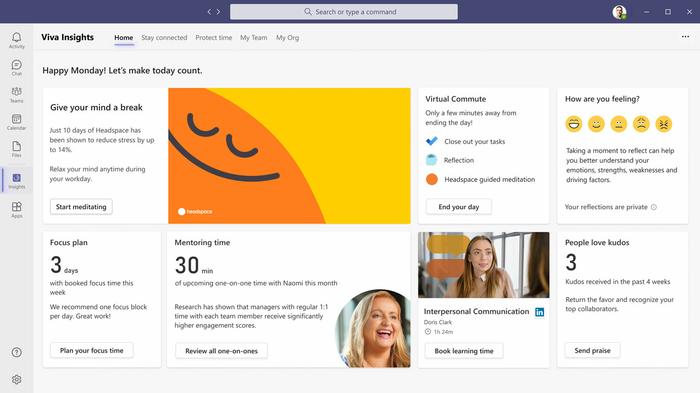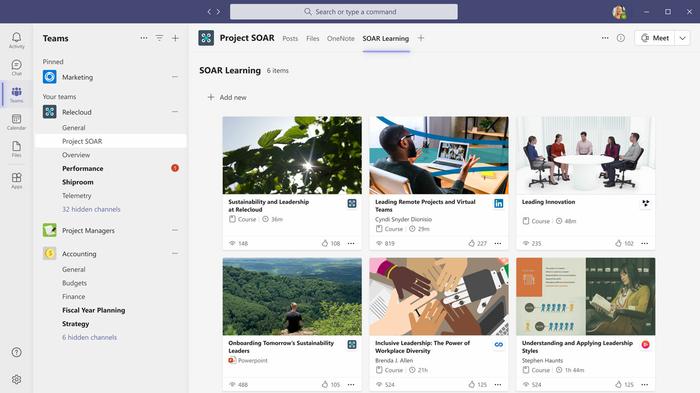Just ahead of the weekend Microsoft announced and gave some details of Viva, a new employee experience platform (EXP). With the Pandemic still having a large effect on our lives, no one expects a rapid return to the office, and hybrid working is perhaps the new normal Microsoft has been looking into creating an office culture without the physical office, through Viva. Moreover, Microsoft reckons tapping this currently fragmented market is a total US$300bn opportunity…

Microsoft showed it was ready for hybrid working with the arrival of Microsoft Teams for consumers in March last year, as part of Microsoft 365, which enabled people to join an integrated environment with meetings, calls, chat, content collaboration, and business process workflows. However, it felt that more was needed to virtualise the office environment – a concept dubbed an employee experience platform. Microsoft says that Viva is the first EXP built for the digital era which was thrust upon us last March.
Microsoft Viva is summed up as bringing together "communications, knowledge, learning, resources, and insights into an integrated experience that empowers people and teams to be their best, from anywhere". It integrates with Microsoft Teams and other Microsoft 365 apps that people use every day.
Four modules make up the Viva EXP as it is set out today, covering key areas of Engagement, Wellbeing, Learning and Knowledge.
- Viva Connections: a Teams app that provides a virtual gateway to access internal communications and company resources. This app is said to help remote employees feel more connected to their colleagues, and also has a role to play to welcome in new employees.
- Viva Insights: personalised and actionable insights about individuals. These are experiences and insights visible only to you (to avoid employee monitoring concerns) but managers can see team/organisation trends and recommendations. Microsoft pitches Viva Insights as being able to help you time manage successfully and avoid burn-out.
- Viva Learning: makes training and professional development opportunities more discoverable and accessible in the flow of work. A culture of learning can help retain talent within your organisation.
- Viva Topics: this AI-powered facility helps people connect to information and experts across the company. Viva Topics automatically surfaces topic cards within conversations and documents across Microsoft 365 and Teams.
Microsoft is starting to roll out Viva experiences right away. Viva Topic is generally available, as are the public preview of Viva Insights and a private preview of Viva Learning. The developer is keen to stress that this is just the beginning of Viva and even in 2021 we will see more innovations added to the EXP. The video below shows the potential of the platform going forward.















